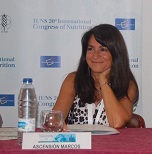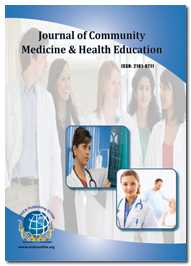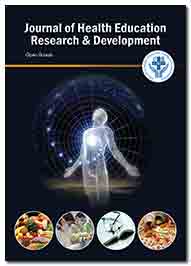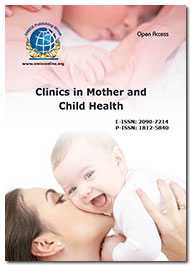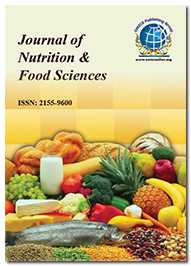Theme: “Integrated approaches for promoting Public Health through Nutritionâ€
Renowned Speakers
Public Health 2016
It is our great pleasure and honor to extend to you a warm welcome to attend the “World Congress on Public Health and Nutrition” which will be held during March 10-12, 2016 in Madrid, Spain.
Public Health 2016 is a premier inter-multi-trans-disciplinary forum taking into account with different ideas and opinions about health care conferences Public Health, Public Health Careers, Public Health Services, Public Health Nutrition, Nutritional Epidemiology, Nutrition and Metabolism, Nutrition and Biological Systems, Nutrition and Infectious Diseases, Nutrition and Non Communicable Diseases, Nutrition Deficiencies and Malnutrition, Nutrition and Systemic Disorders, Nutrition and Health Policies, Nutrition and Health Education, Nutrition and Care.
Track 01: Public Health
Public Health refers to the science of all organized measures protecting and improving health of communities and populations locally and globally and to promote health, prevent disease as a whole through healthy life styles, promotion of research for disease, injury prevention, detection and control of infectious diseases.
Related Conferences: 4th International Conference and Exhibition on Nutrition October 26-28 2015, USA; 4th International Conference and Exhibition on Probiotics, Functional and Baby Foods November 03-05 2015, Spain; 3rd International Conference on Hematology & Blood Disorders, November 02-04, USA; 3rd International Conference on Clinical Pharmacy December 07-09 2015, USA; International conference on Adolescent Medicine & Child Psychology September 28-30 2015, USA; 17th International Congress of Dietetics (ICD) September 7-10 2016, Spain; 18th International Conference on Food Composition Data Nutrition and Public Health January 18-19 2016, USA; 2015 Northeast Epidemiology Conference on September 30-October 2 2015, USA; American Society of Tropical Medicine and Hygiene October 25-29 2015, USA; Pregnancy Summit & Child Health August 29-31 2016, Brazil
Track 02: Public Health Services
Public health systems are commonly defined as “all public, private, and voluntary entities that contribute to the delivery of essential public health services within a jurisdiction.” This concept ensures that all entities’ contributions to the health and well-being of the community or state are recognized in assessing the provision of public health services.
Related Conferences: 4th International Conference and Exhibition on Obesity and Weight Management December 07-09 2015, USA; International conference on Adolescent Medicine & Child Psychology September 28-30 2015, USA; Pregnancy Summit & Child Health August 29-31 2016, Brazil; 8th Global Food Processing Summit & Expo November 09 -11 2015, UAE; 3rd International Conference on Hematology & Blood Disorders, November 02-04, USA; 12th European Nutrition Conference October 20-23 2015,Germany; 2015 Northeast Epidemiology Conference on September 30-October 2 2015, New Jersey; 18th International Conference on Food Composition Data Nutrition and Public Health January 18-19 2016, USA; American Society of Tropical Medicine and Hygiene October 25-29 2015, USA; American Society of Tropical Medicine and Hygiene October 25-29 2015, USA
Track 03: Public Health Nutrition
Public Health Nutrition focuses on the promotion of good health through nutrition and the primary prevention of nutrition related illness in the population. It is an area of concentration emphasizing the application of food and nutrition knowledge, policy, and research to the improvement of the health of populations.
Related Conferences: 6th International Conference and Exhibition on Diet and Nutrition August 18-20 2016, UK; 4th International Conference and Exhibition on Nutrition October 26-28 2015, USA; 8th Euro Global Diabetes Summit and Medicare Expo November 03-05 2015, Spain; World Congress on Amino Acids and Proteins December 08-09 2016, USA; 5th International Conference on Clinical Nutrition November 28-30 2016, USA; Infectious Disease Genomics 2015 October 14-16 2015, United Kingdom; 5th International Conference on Vitamin D Deficiency and Human Health March 24-25 2016, United Arab Emirates; 20th China International Nutrition and Health Industry Expo April 14-16 2016, China; 10th Congress of the Intl. Society of Nutrigenetics and Nutrigenomics May 22-26 2016, Israel; 17th International Congress of Dietetics (ICD) September 7-10 2016, Spain
Track 04: Nutritional Epidemiology
Nutritional Epidemiology is the study of relationship between nutrition and health and it is relatively a new field of medicinal science research. This is totally based on the diet and physical activity of our daily routine life. The top journals are peer reviewed scholarly journals of green chemistry. These provide high quality, meticulously reviewed and rapid publication, to cater the insistent need of scientific community. These journals are indexed with all their citations noted. The top open access journals are indexed in Scopus, Copernicus, CAS, EBSCO and ISI.
Related Conferences: 2nd World Nutraceutical Conference and Expo July 11-13 2016, Malaysia; 6th International Conference and Exhibition on Diet and Nutrition August 18-20 2016, UK; 2nd World Congress on Infectious Diseases August 25-27 2016 USA; 4th International Conference on Epidemiology and Public Health October 03-05 2016, United Kingdom; 5th International Conference on Clinical Nutrition November 28-30 2016, USA; 18th International Conference on Food Composition Data Nutrition and Public Health January 18-19 2016, USA; 5th International Conference on Vitamin D Deficiency and Human Health March24-25 2016, United Arab Emirates; 20th China International Nutrition and Health Industry Expo April 14-16 2016, China; 10th Congress of the Intl. Society of Nutrigenetics and Nutrigenomics May 22-26 2016, Israel; 17th International Congress of Dietetics (ICD) September 7-10 2016, Spain
Track 05: Nutrition and Metabolism
Nutrition Metabolism is the set of life-sustaining chemical transformations within the cells of living organisms. These enzyme-catalyzed reactions allow organisms to grow and reproduce, maintain their structures, and respond to their environments. The word metabolism can also refer to all chemical reactions that occur in living organisms, including digestion and the transport of substances into and between different cells, in which case the set of reactions within the cells is called intermediary metabolism or intermediate metabolism.
Related Conferences: 7th Indo-Global Summit and Expo on Food & Beverages October 08-10 2015, India; 8th Global Food Processing Summit & Expo November 09-11 2015, UAE; International Conference on Protein Engineering October 26-28 2015, USA; 6th Indo congress and expo on Dental & Oral health November 23-25 2015, India; 6th Global Diabetes Summit and Medicare Expo November 02-04 2015, UAE; 5th International Conference on Vitamin D Deficiency and Human Health March 24-25 2016, United Arab Emirates; 12th European Nutrition Conference October 20-23 2015,Germany; Infectious Disease Genomics 2015 October 14-16 2015, United Kingdom; 18th International Conference on Food Composition Data Nutrition and Public Health January 18-19 2016, USA; 2015 Northeast Epidemiology Conference on September 30-October 2 2015, USA
Track 06: Nutrition and Biological Systems
Nutritional systems biology includes studies across the interface between biological systems and nutritional as well as other environmental factors. As part of this, the time-dependent interactions between nutrients, host metabolism, and gut microbiota are still understood. Systems biology in the context of food and nutrition research thus requires bridging across multiple levels and concepts, for example, cellular--organismal, host--microbial, short-term versus long-term effects.
Related Conferences: 7th Indo Global Diabetes Summit and Medicare Expo November 23-25 2015, India; 6th World Congress on Biotechnology October 05-07 2015, India; 4th International Conference and Exhibition on Obesity and Weight Management December 07-09 2015, USA; 4th International Conference on Translational Medicine October 26-28 2015, USA; 4th Global Summit on Healthcare November 09-11 2015, UAE; American Society of Tropical Medicine and Hygiene October 25-29 2015, USA; 5th International Conference on Vitamin D Deficiency and Human Health March 24-25 2016, United Arab Emirates; 17th International Congress of Dietetics (ICD) September 7-10 2016, Spain; Northeast Epidemiology Conference on September 30-October 2 2015, USA; 10th Congress of the Intl. Society of Nutrigenetics and Nutrigenomics May 22-26 2016, Israel
Track 07:Nutrition and Infectious Diseases
Communicable diseases are those which get transferred from one person to another or one animal to a person or another animal by means of any contamination. The diseases often spread from one other via air, food, water or transfusing instruments or blood transfusion or bodily fluids. Communicable also mean infectious and contagious.
Many of the epidemic diseases that the world experiencing today are because of contamination. Limiting contamination and proper hygienic habits can halt the spread of disease.
The focus areas involved in combating communicable diseases include public health information, science and research, prevention and control, case management, and regulating diagnostic tests and vaccines. Early diagnosis, proper medication and maintaining good hygienic habits are crucial for communicable diseases.
Related Conferences: 7th Middle East - Global summit and Expo on Vaccines & Vaccination September 28-29 2015, UAE; 8th Indo Global summit and Expo on Vaccines, Therapeutics & Healthcare November 02-04 2015, India; 4th International Conference on Clinical Microbiology and Microbial Genomics October 05-07 2015, USA; 3rd Indo-Global Summit & Expo on Healthcare October 05-07 2015, India; 4th International Conference on Nursing & Healthcare October 05-07 2015, USA; 12th European Nutrition Conference October 20-23 2015,Germany; 18th International Conference on Food Composition Data Nutrition and Public Health January 18-19 2016, USA; 5th International Conference on Vitamin D Deficiency and Human Health March 24-25 2016, United Arab Emirates; 20th China International Nutrition and Health Industry Expo April 14-16 2016, China; 10th Congress of the Intl. Society of Nutrigenetics and Nutrigenomics May 22-26 2016, Israel; 17th International Congress of Dietetics (ICD) September 7-10 2016, Spain
Track 08: Nutrition and Non-Communicable Diseases
A Non-Communicable Disease (NCD) is a medical condition or disease that is by definition non-infectious and non-transmissible among people. Currently, NCDs are the leading causes of death and disease burden worldwide. The four main types of NCDs, including cardiovascular disease, cancer, chronic lung disease, and diabetes, result in more than 30 million deaths annually. To reduce the burden of NCDs on global health, current Public Health actions stress the importance of preventing, detecting, and correcting modifiable risk factors; controlling major modifiable risk factors has been shown to effectively reduce NCD mortality.
Related Conferences: 7th Middle East - Global summit and Expo on Vaccines & Vaccination September 28-29 2015, UAE; 8th Indo Global summit and Expo on Vaccines, Therapeutics & Healthcare November 02-04 2015, India; 4th International Conference on Clinical Microbiology and Microbial Genomics October 05-07 2015, USA; 3rd Indo-Global Summit & Expo on Healthcare October 05-07 2015, India; 4th International Conference on Nursing & Healthcare October 05-07 2015, USA; 12th European Nutrition Conference October 20-23 2015, Germany; 18th International Conference on Food Composition Data Nutrition and Public Health January 18-19 2016, USA; 5th International Conference on Vitamin D Deficiency and Human Health March 24-25 2016, United Arab Emirates; 20th China International Nutrition and Health Industry Expo April 14-16 2016, China; 10th Congress of the Intl. Society of Nutrigenetics and Nutrigenomics May 22-26 2016, Israel
Track 09: Nutritional Deficiencies and Malnutrition
Malnutrition or malnourishment is a condition that results from eating a diet in which nutrients are either not enough or are too much such that the diet causes health problems. Malnutrition is often used specifically to refer to under nutrition where there are not enough calories, protein or micronutrients. This is often related to high food prices and poverty. A lack of breast feeding may contribute as a number of infectious diseases such as: gastroenteritis, pneumonia, malaria and measles which increase nutrient requirements. Breastfeeding can reduce rates of malnutrition and death in children. Longer term measures include: improving agricultural practices, reducing poverty, improving sanitation, and the empowerment of women. Over nutrition can result in obesity and overweight. Under nutrition is sometimes used as a synonym of protein–energy malnutrition (PEM).
Related Conferences: 5th International Conference and Exhibition on Metabolomics May 16-18 2016, Japan; 4th International Conference on Nursing & Healthcare October 05-07 2015, USA; 5th World Congress on Virology December 07-09 2015, USA; International Conference on Thyroid Disorders and Treatment February 29-March 02 2016, USA; International Conference on Lipid Science & Technology November 30-December 02 2015, USA; 18th International Conference on Food Composition Data Nutrition and Public Health January 18-19 2016, USA; 5th International Conference on Vitamin D Deficiency and Human Health March 24-25 2016, United Arab Emirates; 20th China International Nutrition and Health Industry Expo April 14-16 2016, China; 10th Congress of the Intl. Society of Nutrigenetics and Nutrigenomics May 22-26 2016, Israel; 17th International Congress of Dietetics (ICD) September 7-10 2016, Spain
Track 10: Nutrition and Systematic Disorders
Systemic Disorder is a condition involving the body as a whole, as opposed to limited conditions that affect particular parts of the body. It is an abnormal condition of a part, organ, or system of an organism resulting from various causes, such as infection, inflammation, environmental factors, or genetic defect, and characterized by an identifiable group of signs, symptoms, or both.
Related Conferences: 3rd International Conference on Hematology & Blood Disorders, November 02-04, USA; 3rd International Conference and Exhibition on Pharmacognosy, Phytochemistry & Natural Products October 26-28 2015, India; 8th Euro Global Diabetes Summit and Medicare Expo November 03-05 2015, Spain; 3rd Global Experts Meeting on Weight Loss and Medicare Expo September 19-21 2016, Austria; World Congress on Obesity August 08-10 2016, Canada; 5th International Conference on Vitamin D Deficiency and Human Health March 24-25 2016, United Arab Emirates; 12th European Nutrition Conference October 20-23 2015,Germany; Infectious Disease Genomics 2015 October 14-16 2015, United Kingdom; 18th International Conference on Food Composition Data Nutrition and Public Health January 18-19 2016, USA; 2015 Northeast Epidemiology Conference on September 30-October 2 2015, USA
Track 11: Nutrition and Health Polices
In Nutrition Health Policy rather than considering the health of the individual we will consider the health of the entire community or certain population. It mainly focus on preventing infectious disease, removing contaminants from food and drinking water, reducing pollutions, by Public Health Policies (for example administering vaccines for various diseases) etc. since they can affect the entire community. The health of the nation can be influenced by public health policies, such as a tobacco control policy, and by policies in many other sectors. For example, transportation policies can encourage increased physical activity and school nutrition policies can ensure healthier meals are provided in schools. Many national health strategies, plans, and initiatives, such as Healthy People 2020, have policy implications. Policy decisions are also frequently reflected in resource allocations
Related Conferences: 5th International Conference and Exhibition on Metabolomics May 16-18 2016, Japan; Pregnancy Summit & Child Health August 29-31 2016, Brazil; 6th International Conference and Exhibition on Diet and Nutrition August 18-20 2016, UK; 7th Indo-Global Summit and Expo on Food & Beverages October 08-10 2015, India; 4th International Conference on Nursing & Healthcare October 05-07 2015, USA; 2015 Northeast Epidemiology Conference on September 30-October 2 2015, New USA; American Society of Tropical Medicine and Hygiene October 25-29 2015, USA; 18th International Conference on Food Composition Data Nutrition and Public Health January 18-19 2016, USA; 5th International Conference on Vitamin D Deficiency and Human Health March 24-25 2016, United Arab Emirates; 20th China International Nutrition and Health Industry Expo April 14-16 2016, China
Track 12: Nutrition and Health Education
Nutrition Education is a combination of education and strategies designed to facilitate the voluntary adoption of food choices and other food and nutrition related behaviour for the betterment and maintenance of the health condition of the individual.
Learning about healthy nutritional practices has several positive implications for an individual’s physical well-being. School and secondary education universities should conduct programs designed to educate and encourage children and teenagers to make wise eating choices can help alleviate the prevalence of obesity.
Restrictive eating is extremely detrimental to a person’s health as a lack of nutrients and energy makes it impossible for normal bodily function. Without proper nutritional guidance, children are susceptible towards falling into long lasting poor eating habits that may lead to a number of health risks.
Related Conferences: 5th International Conference and Exhibition on Metabolomics May 16-18 2016, Japan; 4th International Conference on Nursing & Healthcare October 05-07 2015, USA; 5th World Congress on Virology December 07-09 2015, USA; International Conference on Thyroid Disorders and Treatment February 29-March 02 2016, USA; International Conference on Lipid Science & Technology November 30-December 02 2015, USA; 2015 Northeast Epidemiology Conference on September 30-October 2 2015, USA; American Society of Tropical Medicine and Hygiene October 25-29 2015, USA; 12th European Nutrition Conference October 20-23 2015,Germany; 2015 Northeast Epidemiology Conference on September 30-October 2 2015, USA; 18th International Conference on Food Composition Data Nutrition and Public Health January 18-19 2016, USA
Track 13: Nutrition and Care
Nutrition Care is the science of food having balanced organic and inorganic elements like carbohydrates, proteins, minerals, vitamins and phytonutrients supporting wellbeing of a living entity. It includes food intake, absorption, assimilation, biosynthesis, catabolism and excretion.
Nutrition Care provide a common understanding about the profession's minimum expectations for practice, and form a basis for self-evaluation and improvement and an expectation about nutritional care and service delivery. The standards of practice in nutrition care are comprised of four standards representing the four steps of the nutrition care process.
It is a systematic problem-solving method that dietitians may use to critically think and make decisions when providing medical nutrition therapy or to address nutrition related problems and provide safe, effective, high quality nutrition care.
Related Conferences: International Conference on Food Preservation & Packaging March 31-April 01 2016, USA; World Congress on Amino Acids and Proteins December 08-09 2016, USA; 2nd World Nutraceutical Conference and Expo July 11-13 2016, Malaysia; World Congress on Amino Acids and Proteins December 08-09 2016, USA; 3rd International Conference on Hematology & Blood Disorders, November 02-04, USA; 18th International Conference on Food Composition Data Nutrition and Public Health January 18-19 2016, USA; 5th International Conference on Vitamin D Deficiency and Human Health March 24-25 2016, United Arab Emirates; 20th China International Nutrition and Health Industry Expo April 14-16 2016, China; 10th Congress of the Intl. Society of Nutrigenetics and Nutrigenomics May 22-26 2016, Israel; 17th International Congress of Dietetics (ICD) September 7-10 2016, Spain
About Conference:
OMICS International Conferences invites all the participants from all over the world to attend "World Congress on Public Health and Nutrition" during March 10-12, 2016 in Madrid, Spain which includes prompt keynote presentations, Oral talks, Poster presentations and Exhibitions.
The theme of the congress is “Integrated approaches for promoting Public Health through Nutrition” to provide a premier inter-multi-trans-disciplinary forum for researchers, practitioners and educators to present and discuss about public health careers, the most recent innovations, trends, and concerns, practical challenges encountered and the solutions adopted in the health promotion, disease prevention, program development, and nutrition interventions. Follow Public Health Twitter.
OMICS International is a pioneering open access online publisher and the global event organizer that publishes over 700+ peer reviewed journals and organizes 1000+ science events in the fields of clinical, medical, pharmaceutical, and life sciences, including business, engineering and technology.
Why to Attend?
In the light of this theme, the conference series aims at providing the links between diet and health by creating a platform for active participation, exchange of expertise and lateral thinking from health researchers, scientists, policy makers, practitioners and educators through invited plenary lectures, symposia, workshops, invited sessions and oral and poster sessions of unsolicited contributions.
The conference series look forward to welcoming you to an inspiring, educational and enjoyable program in Madrid, Spain with the intent of emphasizing the application of food and nutrition knowledge, policy, and research to the improvement of the health of populations.
Target Audience:
Nutritionists, Dieticians, Health Promotion Practitioners, Physicians, Health Advocates, Nutrition, Epidemiologists, Nutrition Educators, Community Health Workers, Public Health Departments, Health Consumers, Health Policy Makers, Physician Assistants, Nurse Midwives, Nutrition Trainers, Nurse Practitioners, Students
Scope and Importance:
Public health focuses on the health of the public in aggregate. It addresses monitoring and surveillance of nutritional status and nutritional environments in communities or populations at risk, identifies and analyses behavioral, sociocultural, economic, political, and environmental determinants of nutrition-related public health. The 20th century provided horrendous examples of violence, neglect, injustice, suffering and death that resulted from disregard of fundamental values and goals of public health, also Public health has many enormous achievements to its credit adding many years of life expectancy globally. The ultimate goal of public health is the biologic, physical and mental well-being of the society by prolonging life and promoting healthy lifestyle. It includes pre-planning of natural and man-made disasters. Various health systems around the world incorporate public health activities and responsibilities differently, depending on the structure, financing, and availability of health care in a population. The modern public health also deals with disease transmission by conducting research that contributes to generalizable knowledge. Public health has a challenging future which requires building public credibility in face of opposition and reluctance to immunize or to adopt healthy lifestyles, unjustified delayed adoption of effective prevention methods, and challenges and rollbacks due to anti-public health activism.
Summary:
The statistics of public health research has resulted important applications in various disciplines such as epidemiology, economics and behavioral and social sciences.
Industries addressing the Public Health Activities:

Scope and Importance:
Public health focuses on the health of the public in aggregate. It addresses monitoring and surveillance of nutritional status and nutritional environments in communities or populations at risk, identifies and analyses behavioral, sociocultural, economic, political, and environmental determinants of nutrition-related public health. The 20th century provided horrendous examples of violence, neglect, injustice, suffering and death that resulted from disregard of fundamental values and goals of public health, also Public health has many enormous achievements to its credit adding many years of life expectancy globally. The ultimate goal of public health is the biologic, physical and mental well-being of the society by prolonging life and promoting healthy lifestyle. It includes pre-planning of natural and man-made disasters. Various health systems around the world incorporate public health activities and responsibilities differently, depending on the structure, financing, and availability of health care in a population. The modern public health also deals with disease transmission by conducting research that contributes to generalizable knowledge. Public health has a challenging future which requires building public credibility in face of opposition and reluctance to immunize or to adopt healthy lifestyles, unjustified delayed adoption of effective prevention methods, and challenges and rollbacks due to anti-public health activism.
Why Madrid, Spain?
Madrid is the capital city of Spain, Europe. It is one of the largest Spanish cities with more than 3 million inhabitants in the metropolitan area. It is also considered as a very busy business Centre. The city has a wide offer for tourism, culture, business and for ludic activities with excellent facilities and services. It is known for its green surface being the second highest number of aligned trees in the world. As an industrial center, Madrid retains its advantages in infrastructure, as a transport hub, and as the location of headquarters of many companies. A recent study placed Madrid 7th among 36 cities as an attractive base for business. Madrid is home to a large number of public and private universities. Some of them are among the oldest in the world. There are more than 5 community colleges offering degrees in Health Sciences and Nutrition. The city has many more colleges/universities with bachelors and master’s degree programme in public health, health science, dietetics and nutrition.
Conference Highlights
- Nutritional Epidemiology
- Malnutrition and Global Burden
- Public Health Nutritional Case-Studies
- Nutritional Disorders and Management
- Public Health Policies
- Nutritional Supplements and Products
- Health and Nutritional Global Research
- Nutrition Deficiency Case Studies
- Community Nutrition Case Studies
- Women and Nutrition
- Nutrition and Lactation
- Micro and Macro Nutrients
Members associated with Public Health and Nutrition research:
Currently there are thousands of organizational members and thousands of individuals, who’s the only mission is to improve health globally by increasing investments, policies by raising and spreading their collective voice. By analyzing the statistics of the city Madrid, Spain and the world, it was found that more than 500 associations are spread globally, 10 organizations in Spain and 2 in Madrid. These associations help in partnership with mutual benefits regarding health and wealth, share resources and exhibit innovative health strategies.

MEMBERS SURVEY:

Hospitals associated with Public Health research:
The key agenda of public health hospitals is to provide healthy environment that encourages the community to be in a healthy condition. Public health skills have a key role in ensuring highâ€quality, safe and evidenceâ€based health care. The Public Health Hospitals function as an integral part of the Department and contribute to its commitment to maintain, protect and improve the health and wellbeing of citizens of the Commonwealth. There are more than around 74 hospitals having publichealth sectors, 804 in Spain and nearly 11 in the city Madrid. The statistical report shows that Spain spends twice as much treating patients, who come as tourists from other countries.

PUBLIC PRIVATE PARTNERSHIPS (PPP) projects are flourishing in Spain in the area of healthcare sectors. PPP has proved to be an important tool for the development of new hospitals where lack of hospitals is an issue. The regional government of Madrid used the PPP formula to build and operate 8 new Public hospitals, with 120-700 beds.
Societies associated with Public Health research:
Public health societies are associations or organizations run by graduates of national, state and regional public health members with leadership institutes and developmental programs. They mainly emphasize and collaborate on public health issues that impact the nation. Public Health Program supports marginalized populations to fight discrimination and protect their fundamental rights. The program aims to build societies committed to inclusion, human rights, and justice, in which health-related policies and practices reflect these values and are based on evidence. There are over 60 societies all around the world, more than 10 in Spain and about 6-8 in Madrid.

Industries associated with Public Health research:
Public health sectors provide goods and services to treat patients. The industries are divided into many sectors to meet the needs of publichealth in an easy way. Health care is one of the most rapidly growing sectors of the economy, with expenditures in 1988 totaling $539.9 billion, or 11.1 percent of GNP, up from 5.3 percent of GNP in 1960. For 1992, health care spending was projected to be over 13 percent of GNP. This amounts to $2,124 per capita, of which $1,882 was for personal health care—medical services and supplies for individuals. The rest was for research, construction, administration, and public health activities. Hospital expenditures accounted for 39 percent of the total spent for personal health care, physician services for 19 percent, nursing home care for 8 percent, and other personal health care for 22 percent. There are more than 900 healthcare industries over the world and nearly 100 in Spain. The city Madrid has around 30-40 public health related sectors.

Universities associated with Public Health research
The public health universities offer the area to study on global health that could support and cultivate their interest on health conditions of population. This specialty area provides an opportunity for students from different discipline-based programs to explore multi-disciplinary issues in global health through coursework, mentorship, and global health engagement (i.e., social events, internships, symposia, programs). The public health field addresses the interdependent relationships of increasing health risks and medical professionals working. Public health leaders and researchers develop methods to prevent disease, develop reforms, and promote health and well-being for all people. Public health is an academic as well as a practice-oriented endeavor that requires professionals to understand the critical linkages between theory and practice. The Masters in public health provides students with the knowledge and skills for an effective work in the practice of global health; they learn the flexibility to combine coursework in financial management, economics, policy analysis and infectious-chronic diseases with comparative studies addressing the social and cultural issues that impact health. On an analytical survey, it was found that there are more than 80 universities offering public health programs all over the world, more than 60 in Spain and approximately 10 in Madrid.

Market value on Public Health research:
Spanish healthcare spends around 9% of GDP and they spend $9.5 billion for Healthcare Technology equipment. WHO has carried out the first ever analysis of the world’s health system and finds that Spain is one of the best country that provides overall health care. While coming to the Sports Nutrition it was $20.7 billion in 2012 and it was estimated that the market value reaches to $37.7 Billion in 2019. Global Clinical Nutrition market was valued at $36.9 billion in 2013 and is expected to grow to $48.6 billion by value in 2020. In Spain, the incorporation of high technology equipment which are highly expensive for detecting and treating illness is another factor for increasing expenditure.

Market Growth of public health in the last and upcoming ten years
Public health market growth is increasing simultaneously from the last 10 years. The total global health spending was expected to rise 2.6% by 2013, and 5.3% over the next four years. The growth also depends on governments, insurers, healthcare delivery systems, consumers, etc. in both developed and developing countries to bring awareness among population and to deal with issues related to health. According to estimates, the overall market growth in the past ten years has reached to $160000 worldwide and it is expected in the coming ten years it will reach to $5 trillion by 2020 globally.
In last 10 years-

Upcoming 10 years –

Products manufactured by the industry related Public Health and Nutrition and its market Value:
There are several stages involved for a product to be manufactured. The industries work on production, packaging, storage and distribution. The final products are subjected to quality control testing to meet all the required specifications before the product is to be utilized.

Fund Allotment to Public Health and Nutrition:
The global fund allotments on health promote broad availability of existing products and stimulate product development with a wider focus on health systems. They concern on issues such as governance structures, functions, the balance among partnerships, and the ability of recipient countries how the use resources and the balance between support to health systems and funding of health products.

Worldwide-

Statistics of Physicians, Researchers and Academicians working on Public Health and Nutrition
Because of their public health expertise, physicians, researchers and academicians who serve as public health specialists at public health centers and health departments in local or central government have significant roles. They analyze and survey the data by sex, age group and facility type following the changes over time. In 2006, the proportion of physicians working in public health administration agencies was 0.7%. The actual numbers for each survey ranged between 1,800 and 1,900.
Researchers: 1000
Academia: 7500
Students: 7000

Conference Highlights
- Public Health
- Public Health Services
- Public Health Nutrition
- Nutritional Epidemiology
- Nutrition and Metabolism
- Nutrition and Biological Systems
- Nutrition and Infectious Diseases
- Nutrition and Non-Communicable Diseases
- Nutritional Deficiencies and Malnutrition
- Nutrition and Systematic Disorders
- Nutrition and Health Polices
- Nutrition and Health Education
- Nutrition and Care
To share your views and research, please click here to register for the Conference.
To Collaborate Scientific Professionals around the World
| Conference Date | March 10-12, 2016 | ||
| Sponsors & Exhibitors |
|
||
| Speaker Opportunity Closed | Day 1 | Day 2 | Day 3 |
| Poster Opportunity Closed | Click Here to View | ||
Useful Links
Special Issues
All accepted abstracts will be published in respective Our International Journals.
- Journal of community medicine & health education
- Journal of clinics in mother & child health
- Journal of Health Education Research & Development
Abstracts will be provided with Digital Object Identifier by






